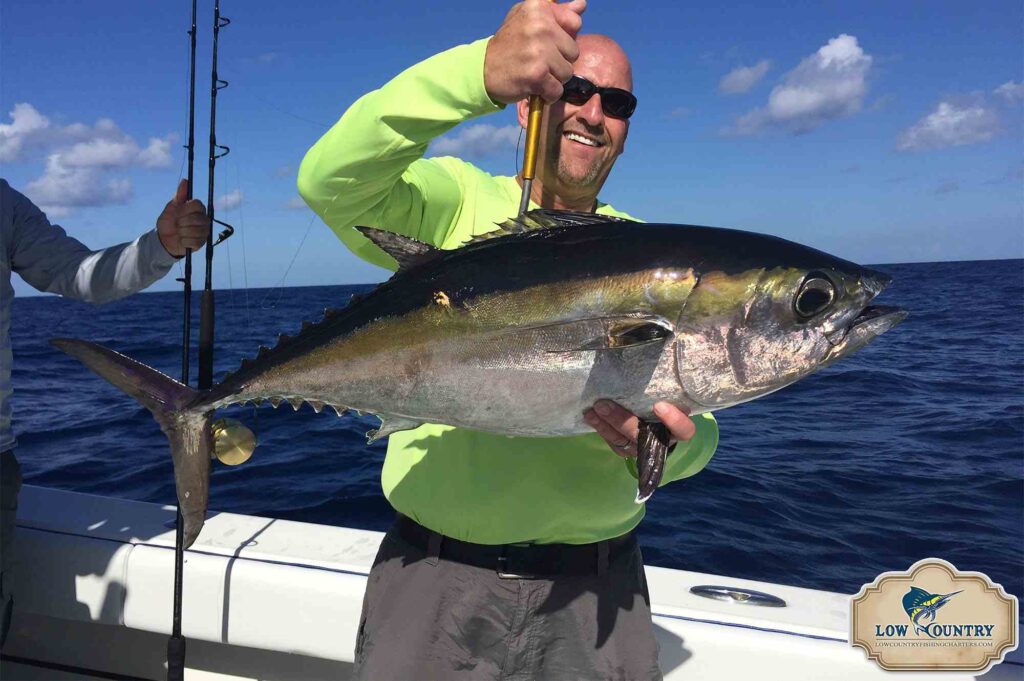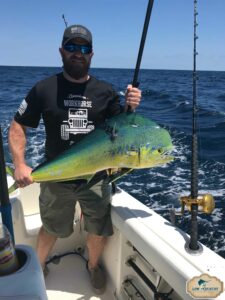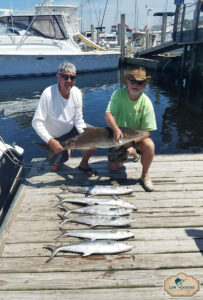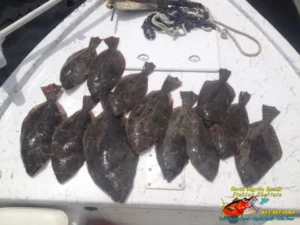Venturing into the deep sea, rod in hand, with the horizon stretching infinitely before you, is an exhilarating experience. However, the specter of seasickness can dampen the excitement of even the most enthusiastic angler. This condition, a discord between your inner ear’s sense of movement and your visual perception, can turn a thrilling adventure into a challenging ordeal. Yet, the good news is that with some preparation and the right strategies, you can significantly reduce the likelihood of seasickness, ensuring your time on the water is enjoyable and fruitful.
Understanding Seasickness
Before we tackle the solutions, let’s delve into the root of the problem. Seasickness, or motion sickness, arises when there’s a disconnect between what your eyes see and what your body feels, especially in the fluid-filled canals of your inner ear that detect motion. This discrepancy can lead to nausea, dizziness, and even vomiting, which is the last thing you want when you’re trying to enjoy deep sea fishing.
Preventative Measures to Combat Seasickness
Scopolamine Patch: Often hailed as a miracle for those prone to motion sickness, this small patch, applied behind the ear, can offer relief for up to three days, making it a must-have for longer trips.
Over-the-Counter Medications: Drugs like Bonine or Dramamine are accessible and effective options. Taking a dose the night before and again on the morning of your trip can help stave off seasickness symptoms.
Alternative Remedies: For those who prefer to avoid medication, alternatives like Sea Bands, which apply pressure to specific points on your wrist, or natural supplements like ginger or peppermint, can offer relief without the side effects of pharmaceuticals.
Dietary Considerations: What you eat before and during your trip can play a significant role in how you feel. Opt for light, easily digestible foods and avoid heavy, greasy meals that can exacerbate seasickness.

Enhanced Tips for a Seasickness-Free Fishing Experience
Embrace Fresh Air and Movement: Sometimes, simply moving to an area with fresh air and allowing your body to feel the motion of the boat can help alleviate symptoms.
Ensure Adequate Rest and Hydration: Entering your fishing adventure well-rested and hydrated sets a solid foundation for avoiding seasickness.
Limit Alcohol Consumption: Alcohol can dehydrate you and make motion sickness much worse. Save the celebratory drinks for after your successful fishing trip.
Focus on the Horizon: Fixing your gaze on a stable point on the horizon can help your brain reconcile the difference between what you’re feeling and what you’re seeing, reducing nausea.
Pack Smart Snacks: Bringing along simple, stomach-friendly snacks like crackers or fruit can be a lifesaver if you start to feel queasy.
Start with Shorter Trips: If you’re new to deep sea fishing, consider beginning with shorter excursions to gradually build your sea legs.
By arming yourself with these strategies, you’re setting the stage for a seasickness-free deep sea fishing adventure. Remember, preparation is key, and by taking proactive steps, you can ensure that your time on the water is both enjoyable and productive. So, gear up, keep these tips in mind, and get ready to cast your line into the deep blue without the worry of seasickness holding you back.
FAQ: Strategies to Ward Off Seasickness on Deep Sea Fishing Excursions
What is seasickness and why does it happen
Seasickness, or motion sickness, occurs when there’s a discrepancy between what your eyes see and what your body feels, particularly in the motion-detecting fluid-filled canals of your inner ear. This can lead to symptoms like nausea, dizziness, and vomiting.
What are some effective preventative measures against seasickness?
Effective measures include using a scopolamine patch, taking over-the-counter medications like Bonine or Dramamine, using alternative remedies such as Sea Bands or natural supplements like ginger, and being mindful of dietary choices before and during the trip.
How does the scopolamine patch work?
The scopolamine patch, applied behind the ear, releases medication that can offer relief from motion sickness for up to three days, making it a preferred option for longer deep sea fishing trips.
Are there any natural remedies for seasickness?
Yes, natural remedies like ginger or peppermint supplements, as well as acupressure wristbands known as Sea Bands, can provide relief without the side effects often associated with pharmaceuticals.
How can diet impact seasickness?
Your diet plays a crucial role. Opting for light, easily digestible foods before and during your trip can help, while heavy, greasy meals should be avoided to prevent exacerbating seasickness symptoms.
What are some enhanced tips for avoiding seasickness while fishing?
A6: Staying in areas with fresh air, ensuring adequate rest and hydration before the trip, limiting alcohol consumption, focusing on a stable point like the horizon, packing stomach-friendly snacks, and starting with shorter trips can all help mitigate seasickness.
Why is focusing on the horizon recommended?
Focusing on the horizon helps your brain reconcile the difference between the motion you’re feeling and what you’re seeing, which can reduce the feeling of nausea.
Can starting with shorter deep sea fishing trips help?
Yes, beginning with shorter excursions can help your body gradually adjust to the motion of the boat, building your sea legs and reducing the likelihood of seasickness.
Is it advisable to consume alcohol before or during a deep sea fishing trip?
It’s best to limit alcohol consumption as it can dehydrate you and worsen the effects of motion sickness. Celebratory drinks are better saved for after the trip.
By employing these strategies, you’re better prepared to enjoy your deep sea fishing adventure without the discomfort of seasickness.
Low Country Fishing Charters LLC
741 Churchhill Downs Drive
Myrtle Beach, SC 29579
843-222-7433
www.lowcountryfishingcharters.com




